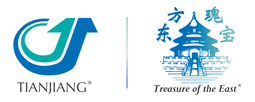Indigo Naturalis (Qing Dai) and Ulcerative Colitis
The following article is provided only as an educational resource - it is not intended or implied to be a substitute for professional medical advice, and the herbs and/or formulas within are not intended to diagnose, treat, cure or prevent any diseases. This information is intended for only licensed healthcare practitioners.
Chronic, inflammatory bowel diseases like ulcerative colitis can create significant challenges for those who suffer from them. These conditions involve long-term inflammation of the digestive tract, causing symptoms such as severe diarrhea, abdominal pain, fatigue, and weight loss. The search for effective treatments is ongoing, and in recent years, there has been growing interest in the potential benefits of natural therapies.
An herb that has caught the attention of researchers and patients alike is indigo naturalis, also known as Qing Dai (青黛) in traditional Chinese medicine. Indigo’s popularity has even earned it the nickname, “the colitis herb.”
What are the benefits of the indigo herb?
Among its many potential benefits, there is suggestion that the indigo herb may aid in the healing of ulcerative colitis, improve digestion, support liver function, and assist in the treatment of dermatological disorders such as eczema and psoriasis.
What is indigo naturalis?
Indigo naturalis is a blue-black powder derived from the leaves and stems of plants such as Indigofera tinctoria and Strobilanthes cusia. This therapeutic compound has been used in Chinese medicine for generations and is known for its striking blue color, which is how it got its name, 'Indigo'.
The active components of indigo naturalis include indigo, indirubin, and tryptanthrin. These compounds are believed to have anti-inflammatory and immune-regulatory effects, which may help reduce the symptoms and progression of inflammatory bowel diseases (IBD).

Indigo naturalis (Qing Dai) in traditional Chinese medicine
The healing properties of indigo have been documented in Chinese medical texts since the tenth century.
Historically, indigo naturalis was considered a potent remedy for conditions caused by excess heat or inflammation in the body.
Due to indigo’s heat-clearing, detoxifying, and blood-cooling properties, traditional Chinese medicine (TCM) practitioners continue to prescribe qing dai for a wide range of inflammatory conditions, including psoriasis and eczema, and inflammatory bowel diseases including ulcerative colitis.
Studies have shown significant improvement in patients' symptoms after using indigo naturalis, adding additional credibility its historical usage for inflammatory conditions expressed both on the skin and in the gut.
Research-backed health benefits of indigo naturalis
Let's explore some recent clinical trials that show promise for the use of indigo in cases of ulcerative colitis.
Research on Indigo for Ulcerative Colitis
In a randomized controlled trial conducted in Japan, patients with moderate to severe ulcerative colitis showed a significant clinical response after eight weeks of oral indigo naturalis therapy.
Another study found that patients with ulcerative colitis who were given indigo naturalis showed significant improvement in their symptoms compared to those who received a placebo.
Indigo herb as maintenance therapy
In addition to its use as a remission induction therapy, indigo may also have potential as a maintenance therapy for ulcerative colitis.
A small (11-participant) randomized controlled trial published in 2021 showed that oral administration of indigo naturalis was considerably effective in inducing clinical remission in patients with moderate to severe ulcerative colitis. 91% of the patients, the majority with moderate-to-severe disease, achieved positive clinical outcomes.
Another study evaluated the efficiency of topical use of indigo naturalis as an enema therapy in patients with refractory ulcerative colitis. The results were promising, showing significant clinical and endoscopic improvement.
How does indigo naturalis work?
When taken orally, indigo naturalis is believed to work by interacting with the gut's immune cells to reduce inflammation. This calming effect on the gut's immune response can help reduce symptoms and potentially slow down the progression of the disease.
To truly understand the therapeutic benefits of the indigo herb, let’s look at a few of its potent natural compounds.

- Indigo and Indirubin
- Tryptanthrin
- Isoindigo
Together, these compounds could potentially decrease chronic inflammation in the digestive tract, bringing healing and relief for ulcerative colitis.
Dosage and side effects of Qing Dai
The recommended dosage of the indigo herb can vary depending on the specific condition being treated. As with any Chinese herb, we recommend consulting with a qualified practitioner of traditional Chinese medicine (TCM) about qing dai before any course of treatment is started.
Your TCM practitioner will take your health history, current medications and other factors into consideration when prescribing qing dai. Remember, seeking a clinician’s guidance can put you on the right path to effective and efficient clinical outcomes.
While indigo naturalis is generally considered safe for most people, it can cause side effects in some individuals, including headaches and abdominal pain.
Women who are pregnant or nursing, as well as people with liver disease, should avoid or use indigo with caution.

Where to buy indigo naturalis (Qing Dai)
For practitioners, Treasure of the East offers full-spectrum indigo powder and capsules. We also offer bulk Indigo, offering a savings of 20% compared to the same herbs in bottles!
As interest in indigo naturalis grows, so does its availability. However, it's crucial to source it from reputable retailers.
If you’re a consumer looking to purchase indigo, look for suppliers who provide clear information about the product's origin, purity, and testing procedures to ensure you're getting a high-quality product. Please read "Where to Buy Chinese Herbs Safely" for more tips on how to source herbs safely.
Conclusion
Indigo naturalis, with its suggested gut-soothing, anti-inflammatory, and immune-regulating properties, holds significant potential for providing relief and healing from ulcerative colitis.
If you’re looking for a safe, effective, natural remedy for IBD, consult with your health care provider about indigo.
Practitioners, did you know...? Treasure of the East’s full-spectrum extracts contain the same active chemical constituents as raw herbs! Register for a professional account today, or read on to discover all the benefits of including full-spectrum granules in your herbal pharmacy.


















